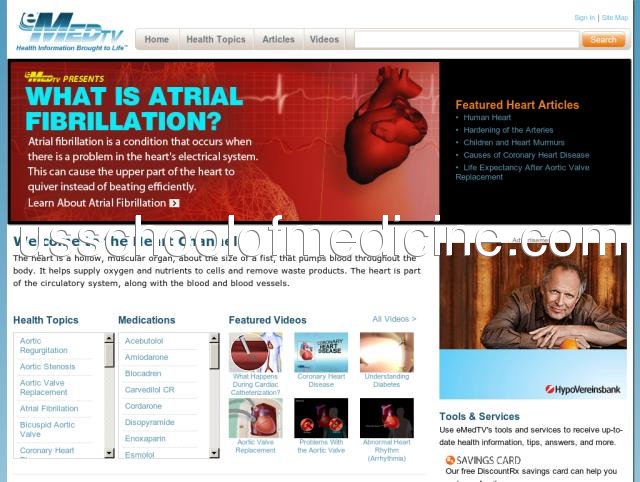heart.emedtv.com Review:
Fast shipping and low prices on the entire range of tablets priligy uk
Firme y prolongada erección, independientemente de la persona física o psicológica, con la sensación de un orgasmo mucho más brillante, compaera, por supuesto, en el séptimo cielo de la felicidad compra levitra Después de un accidente cerebrovascular o infarto de miocardio no utilizar el producto en un plazo de 6 meses.
Heart Home Page - The heart is part of the circulatory system and, as such, helps provide oxygen to cells throughout the body. This eMedTV channel provides hundreds of articles, covering topics from heart disease to bypass procedures to the anatomy of the heart.

Country: 54.225.244.154, North America, US
City: -77.4728 Virginia, United States
My sister recommended this for me as she was given this from her naturopathic dr. I am completely happy with the results. I will continue to purchase it regularly until full menopause hits.
This tea works wonders and relieves pain and stiffness in my back and knees. I highly recommend this tea. I use one Yogi tea bag and one black or green tea to get my dose of caffiene. I usually drink 3 cups a day---2 with black tea, and 1 with green tea to get the caffiene.
Came alot faster than I had figured. Packed well, and working. What more could you want? All I can say is give It a try. You wont be disappointed.